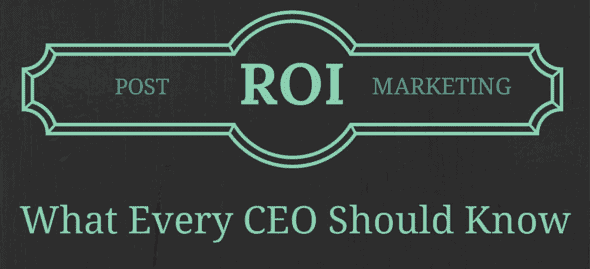CEOs Turn To Marketers To Lead the Way in Digital Business
In a period of growth, it’s time to reexamine your marketing strategy.
We’re finally shedding the lingering vestiges of one of the worst economic setbacks in our history. The indications of a tentative recovery have blossomed into something we haven’t seen in a while: honest-to-goodness growth.
Marketers have more cause than many to celebrate the economic turnaround. We all know that marketing budgets are the first to get cut when the going gets rough – but the last item to get on the budget.
Measuring Optimism, Strategizing Growth
So where does marketing fit in this brave new world of (somewhat cautious) economic optimism?
Gartner’s annual CEO Survey offers some interesting points to consider:
- Growth tops the list of strategic business priorities for 2014 and 2015 — three times more than bottom-line concerns
- 43% of respondents have a formal digital leader now, and another 13%plan to appoint one within two years
- Many CEOs define “digital business” in marketing terms
- CEOs rank digital marketing as the most important tech-enabled capability for investment over the next five years
- CEOs and senior business leaders view information as a corporate asset
Digital Leadership – The Marketer’s New Role
The way forward seems clear. Digital leadership is a strategic necessity for corporate management as they assess ways to leverage growth in the marketplace. And that digital leadership is placed squarely on marketers.
While this is good news for marketers, who have vivid memories of the horrors of the oh-so-recent Great Unpleasantness, it’s not quite time to go skipping down the lane. With digital leadership comes the obligation of steering the ship through uncharted waters.
And here be dragons.
The pressure to show a return on investment is still there and now is added the new burden of a fresh load of expectations of what must be delivered. What’s at stake?
A New Frontier
Online marketing, social media marketing – they’re evolving at a frightening pace. There’s more to the world than Facebook: if you’re squinting at strategic goals through a two or four-year-old kaleidoscope, you’re doomed; the options just aren’t there. Doing digital business is the growth imperative. It’s a whole new world, and it needs data to set the course.
Totally new core competencies are required as companies make the complex move toward digital business. Some are at the forefront of this transformation where mobile, cloud, and the internet of things have worked to blur the distinctions between the virtual and physical commercial landscape. Others are struggling – outright floundering – because they missed the boat back in the 90s as the internet began to change the game.
Marketing In The Digital Business
Maybe you’re thinking, ‘This whole ‘digital business’ thing is an IT issue. Give it to them and they’ll sort it out.’ That’s a costly position to hold. What your company does now in the early phases of digital business will have enormous ramifications in the decades to come. Yes, there is technological infrastructure to put in place and the inevitable bugs and kinks to squish and smooth out. But there are market experiments to carry out. The learning and capability development can’t be ignored. Marketing points the way to ensuring you achieve actionable goals.
Any corporation ignoring the importance of ecommerce is heading for trouble. It’s not just as a source of revenue but a means of entering the economic reality of a not-too-distant future.
A Cautionary Tale
The online portal isn’t a fad.
Take the case of Bed Bath and Beyond. After its dismal first-quarter earnings, Morgan Stanley
[1] had some interesting observations to share: “We continue to view BBBY risk/reward as unattractive given expected margin growing pains as the business transitions to omni-channel.” Analysts note that despite the investment the company made in its online forum, its weakness was a key reason for its poor performance.
One industry watcher sees a short-sighted digital presence as the supreme fault:
“While the earnings report doesn’t go into much detail, we can point to a number of factors impacting the company’s performance. First of all, its online channel is woefully inadequate according to some analysts, while Restoration Hardware’s online sales, for example, are booming. Despite investments in this channel, there isn’t much notable improvement to be seen.”
[2]
And even where companies are making decisive, well planned, goal-aligned moves into digital business, there are bumps. ‘Digital delay’ is one term for the dips in sales as the move over to digital fora takes place. But the dips are strategically sound reversals that will in time net serious opportunities for companies who can see the trend, rather than dismiss the fad.
“…ignoring your industry peers is a mistake. Maybe all of you ignored the trend at first, but once some of the others get going you must move with the pacesetters. That’s because you can’t catch up quickly later just by throwing money at the problem. It’s not just a matter of tech investment. Hearts and minds must be won and shifted. Processes and organization structure must change. New methods and driving metrics must be created and believed in. Ideas like the end of the bricks and mortar ‘space race’ take a long time to seep into the consciousness and actions of all the line managers in a large organization.”[3]
Data and Content
In this new age of business, marketing has the power to yield the two building blocks of success in the digital marketplace: data and content.
Information is more critical than ever before. The majority of consumers expect a healthy, sophisticated online presence – and companies that don’t are likely to get labeled as suspect or inferior. Consumers will shop a brand before they commit to purchase. And they expect to have avenues of communication where they can talk about what they like (and don’t like) about products and services.
Social media, then, is the great net capturing this data. Throw in search engine analytics and SEO and you have the necessary tools to create an online audience you can then market to – and convert into consumers.
Your online business space, however, is built out of content. That data you capture needs to funneled toward the creation of engaging content that enriches and supports the new kind of economic exchange, one carried on with individuals who are less passive and more active in their relationship with business than their parents were.
What Marketing Needs To Bring
So what does this digital leadership entail? What does marketing bring in real terms to this transition to the evolving world of digital business? A lot, it turns out.
The Customer Is King.
True before, crazy true now. Social media allows marketers to know what makes your consumers tick – everything from what they love to what they hate and every shade of gray between. Because the new consumers share so much, social media marketing is a means to know your demographic and pursue marketing campaigns with incredible precision. This means retaining old consumers and getting new ones.
The Digital Consumer Experience.
Marketers need to learn what consumers like and do not like in the purchasing process. Optimization in this key area can be among the most important contributions to the success your marketing team brings to the table.
Build Corporate Culture Around Digital.
The era of hybridization has begun: marketers are one part marketer, one part techie – and capable of communicating these roles clearly and effectively. They need to create consensus, to become advisors to help make the path forward clear as well as provide a rationale for the direction taken.
IT Is Your Best Friend.
But be warned: the tech can’t dominate the conversation. Establishing good relations with providers is the best means to help keep everything focused on the consumer’s expectations, likes and dislikes.
The Eternal Present.
If there is one defining aspect of the digital business, it’s that it never stops. Markers need to know this and adapt to it – the consumer is there, present, bright-eyed-and-bushy-tailed 24 hours a day, every day. Part of establishing a digital culture is responding to this in a way that serves your customer and supports growth.
The Future…
The digital business world is a reality unfolding before our eyes. Change in the business world follows the patterns found elsewhere: new pressures create fresh opportunities for success – and failure. Keeping your business agile means understanding the critical role marketing plays in this period of transition. If you need experience and an understanding of what digital marketing can do for you, contact Zen Media today. Don’t let the digital revolution leave you behind.
[1] Source: finance.yahoo.com/bank-america-morgan-stanley-bed-171606609.html
[2] Source: The Motley Fool: www.fool.com/investing/general/2014/07/04/why-is-bed-bath-beyond-underperforming.aspx
[3] Source: The Future Cost of being a Digital Business Laggard (gartner.com).









